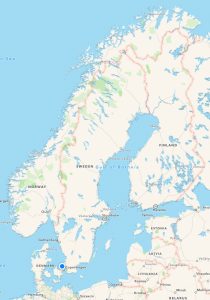The Nordics Must Transform Their Model in Order to Secure Future Prosperity, Warns New Study
 STOCKHOLM, November 20, 2014—The Boston Consulting Group (BCG) today published “Nordic Agenda: Transforming for the Next Wave of Success”.
STOCKHOLM, November 20, 2014—The Boston Consulting Group (BCG) today published “Nordic Agenda: Transforming for the Next Wave of Success”.
The report pinpoints the main challenges facing the Nordics and offers a fact-based argument why we must transform our model. The report also highlights the most critical areas on which we should focus our transformation efforts and the ten key steps that will bring us closer to creating the next wave of success.
The Nordic model has served the Nordic people well in the past few decades by enabling us to become some of the wealthiest and happiest people in the world. However, the Nordic model is facing four major challenges:
- Economic complexity is decreasing. As small open economies that rely on trade to create wealth, the uniqueness and diversity of our exports have declined by nearly a quarter in the past 20 years as the emerging economies are caching up.
- Productivity momentum is on the decline. Productivity – the most potent lever of economic growth – is under pressure due to the shift from manufacturing to services and the large public sectors, leading to a slowing down in productivity momentum in all four Nordic countries.
- We invest too little in the future. The Nordics have some of the highest levels of government spending relative to GDP in the developed world, but we spend far less on forward-looking investment than our key competitors.
- Aging population is projected to result in a 2 million workforce gap by 2030. It is estimated that, by 2030, there will be on average 92 dependents for every 100 workers to support in the Nordics. This will seriously limit the Nordics’ ability to create wealth and threaten the sustainability of our current welfare model.
Weighed down by these challenges, the Nordics’ competitiveness is increasingly becoming an illusion: although we are competitive in a global context, we are in the bottom half or bottom quartile of our key country competitors. In BCG’s “medal league of competitiveness”, in which the Nordic countries are pitted against these competitors on more than 40 different metrics, the Nordics have very few gold medals to boast of but many bottom-three positions. In other words, the Nordics’ competitive advantages are fading while we have plenty of competitive disadvantages that we need to address urgently.
Embarking on the road of decline
Today, the Nordics are either already on or embarking on the road of decline, as they struggle to deal with the key challenges. The slowdown in our productivity growth, the stagnancy in hours worked and the resultant decline in economic growth in the last decade bear witness to this fact.
Transformation is critical to unleashing the enormous potential in the Nordic model to continue to create wealth and well-being for the Nordic people. In order to fund this transformation journey, the Nordics need to make some fundamental adjustments to the Nordic model, including reducing public expenditure’s share of GDP, enabling more people to work, opening up the labor market and taking immediate steps to help businesses overcome competitive disadvantages. With the resources freed up from this phase of transformation, the Nordics must invest in the future drivers of growth. These drivers include: improving business conditions, driving innovation, pushing forward digitization and revitalizing the public sector. In addition, the Nordics must focus on winning the “war for talent” by leveraging current human capital to a higher degree, becoming a magnet for talent and increasing labor immigration.
Huge advantages
Transforming the Nordic model can bring vast benefits. By our estimation, Denmark and Finland have the potential to add 1.5 to 2 percentage points to their annual GDP growth while Norway and Sweden have the potential to increase their annual GDP growth by 1 to 1.5 percentage points.
The new BCG report outlines a 10-step transformation agenda that will enable the Nordics to get closer to realizing these benefits. This agenda is based on a proven transformation framework that BCG has developed while helping hundreds of organizations worldwide to implement their transformations.
“
We need to transform the Nordic model in order to protect its core and secure the competitiveness of our nations. We owe ourselves and the future generations this effort. Despite the differences between the Nordics, the imperative to transform applies to all. Had Denmark and Finland been companies, they would have been in turnaround mode. Sweden and Norway are not yet in such trouble, but indicators show that they will also face decline. The potential benefit of transformation is enormous. We are confident that our transformation agenda, if implemented, will enable the Nordics to create the next wave of success.”
Lars Fæste, Senior Partner and BCG’s global lead for Transformation
A copy of the report can be downloaded here.
See also: Destination The Nordics: Small, but “beautiful.”
About The Boston Consulting Group
The Boston Consulting Group (BCG) is a global management consulting firm and the world’s leading advisor on business strategy. We partner with clients from the private, public, and not-for-profit sectors in all regions to identify their highest-value opportunities, address their most critical challenges, and transform their enterprises. Our customized approach combines deep insight into the dynamics of companies and markets with close collaboration at all levels of the client organization. This ensures that our clients achieve sustainable competitive advantage, build more capable organizations, and secure lasting results. Founded in 1963, BCG is a private company with 81 offices in 45 countries.









